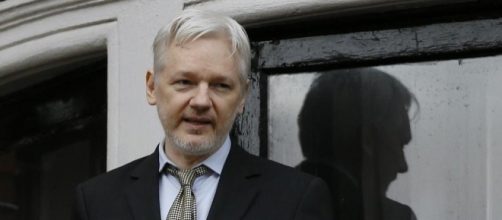Julian Assange, Wikileaks' founder, remains holed up in the Ecuadorean Embassy in London while tech gurus, journalists, pundits, and the public seek to know more about the CIA’s intrusion techniques – some eagerly awaiting the next WikiLeaks installment of the alleged CIA leak of 2017.
Though some people may consider that Assange has purposely tossed the “Vault 7” documents into the WikiLeaks mix to garner attention, some people may also wonder whether the big CIA leak actually happened. After all, the exploits exposed in the big leak primarily affect older technology.
Facing TVs reality in the aftermath of WikiLeaks
Even in the event of an actual CIA leak, the outcome is that many people now think the device they watch could be harboring their secrets that might find a way to unwanted venues. That a TV or another device operating with sensor-activated technology can glean information about users should come as no surprise. TVs have the capability to respond to voice commands, recall what was recently watched, and retain preferences of individual viewers.
Beyond the heightened sense that Big Brother may be monitoring more than previously thought, why should people entrust that Assange and WikiLeaks really are in possession of leaked CIA data? Facts are just that: Facts.
What people know is that Assange is not a pillar of virtue. He’s living in an Embassy to elude extradition to Sweden while he thrusts his take on “transparency” and honesty onto the public.
More in store from WikiLeaks?
Assange announced his plan to release more CIA documents, but, days later, where are the documents? There are various scenarios that could have transpired:
- WikiLeaks released authentic, yet redacted data.
- WikiLeaks fell victim to CIA counterintelligence and attained false documents.
- WikiLeaks has a source who is committing espionage.
- WikiLeaks perpetrated a hoax to evoke attention, a widespread response, additional funding, or a combination.
- WikiLeaks baited the public with chum to watch “sharks” in a feeding frenzy, fueling one’s ego.
The future of WikiLeaks and its founder
If Assange leaves the Embassy (his hideaway), he risks arrest and extradition to Sweden.
But, by remaining a resident-guest of the Embassy, he outlasts the statute of limitations and leaves the Embassy in 2020 a free man. It serves him well to remain visible and affect public discourse in the interim.
To remain relevant upon enjoying the world outside the Embassy, Assange has to be a serious thought and not a blip on a fading radar. Otherwise: How will Assange source a living through WikiLeaks? By taunting and teasing, he is a commodity to some and a perceived threat to others. Assange keeps people interested, guessing, and some wondering, “What or who is next?” If nothing else, Assange is a provocateur.

